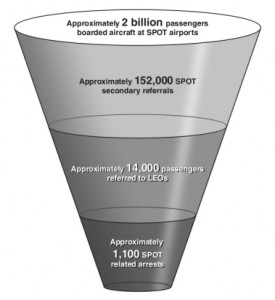Wanna buy a prepaid SIM card? “Papers, please!”
S. 3427, a bill introduced in the Senate this week by Senators Charles E. Schumer (D-NY) and John Cornyn (R-TX), would require would require ID “verification” as a prerequite to buying a prepaid cell phone or SIM card.
The seller or reseller of the phone or SIM card would be required to collect your personal information (including name, address, date of birth, and for online sales your Social Security number) and all unique identifiers of the phone or SIM card including the including the EMEI or other serial number and the assigned phone number.
For in-person sales, you would have to show government-issued ID credentials in a form to be determined later by the Attorney General. For online or other non-face-to-face sales, you would also have to provide “Any other personal identifying information that the Attorney General finds, by regulation, to be necessary for purposes of this section.”
The bill would place no limits on the amount or intrusiveness of the information the Attorney General could demand, as long as it is spelled out in regulations. And there’s nothing in the bill to stop the AG from making the verification requirements so onerous as to amount to a de facto ban on online or mail order sales of prepaid SIM card or cell phones, as Ken Grunski — president of Telestial.com, a leading US-based online source of prepaid SIM cards and cell phones for international travelers — immediately picked up on when we sent him a copy of the bill:
The level of verification that the bill requires is critical to e-commerce providers … because they can only verify an identity to a certain extent online. For example, if the bill just required that the billing address match the shipping address, we can do that easily. But if the bill requires a state or country issued identity card, we can’t do that online. You are essentially saying that the product can’t be sold online anymore, because you can’t verify the identity of the person making the purchase.
It really opens up all types of questions, like what types of impositions would that take on the e-commerce companies and why only SIM cards and prepaid cell phones? This could lead to regulation of all types of telecom products – or anything that puts out a transmission signal.
